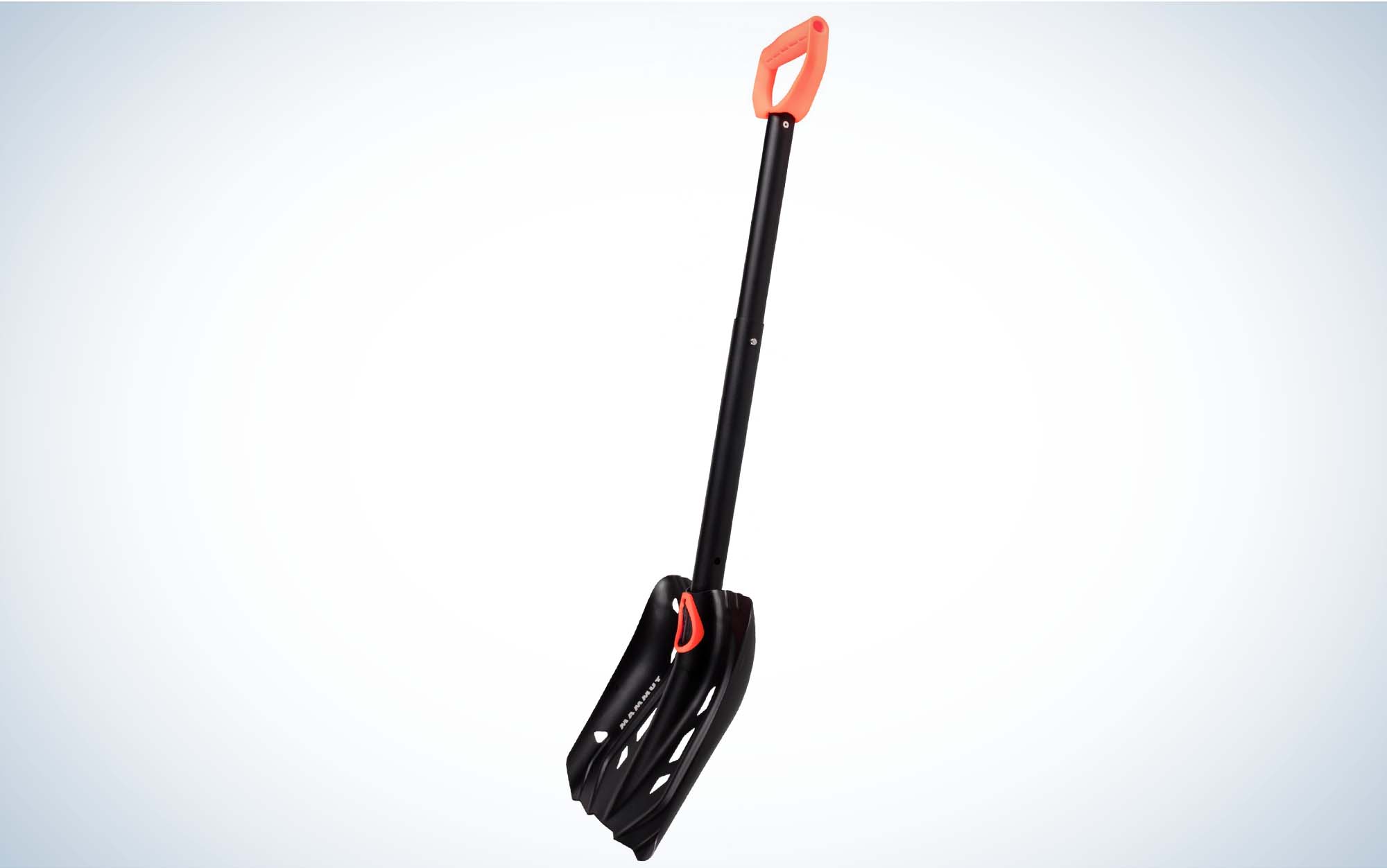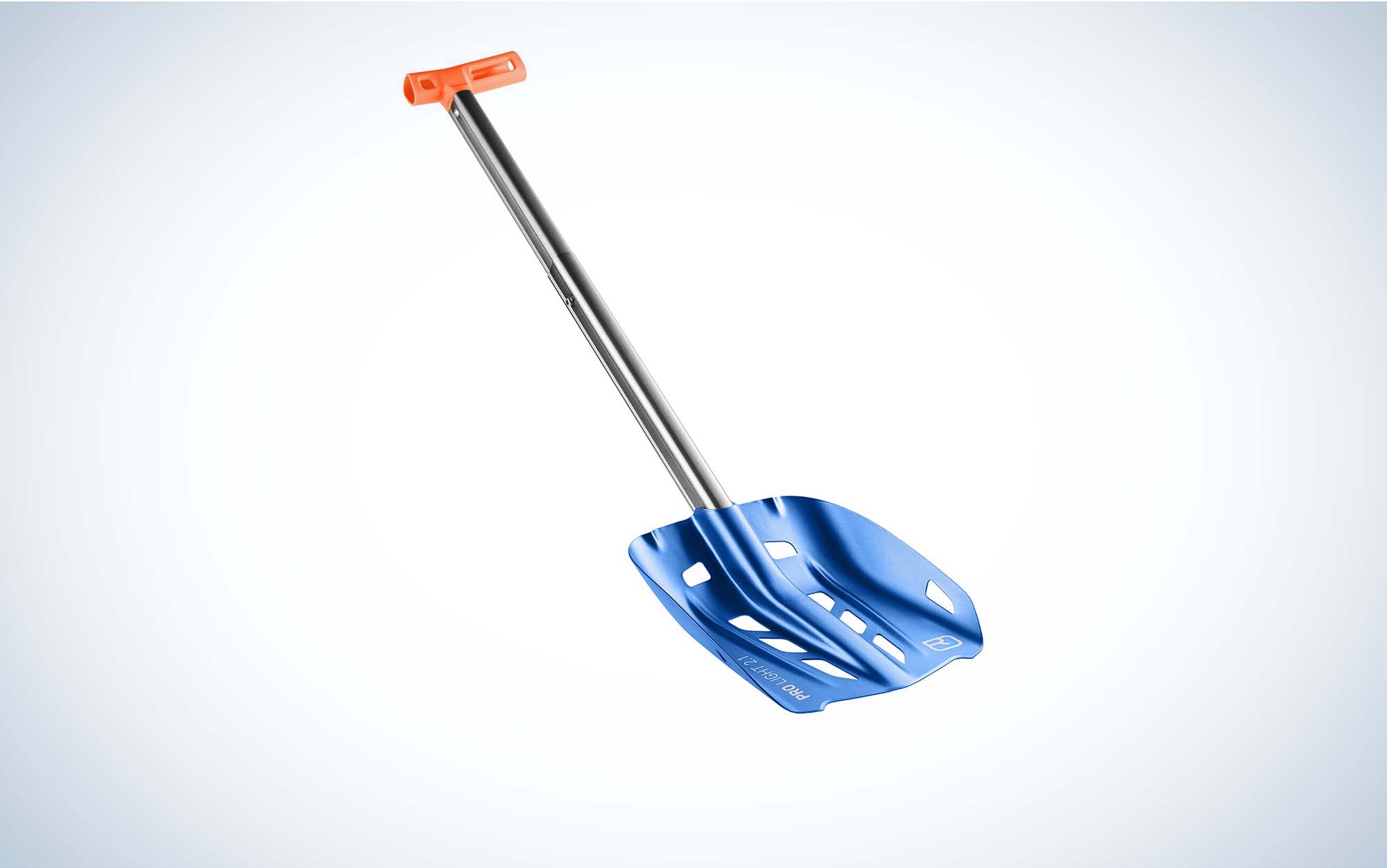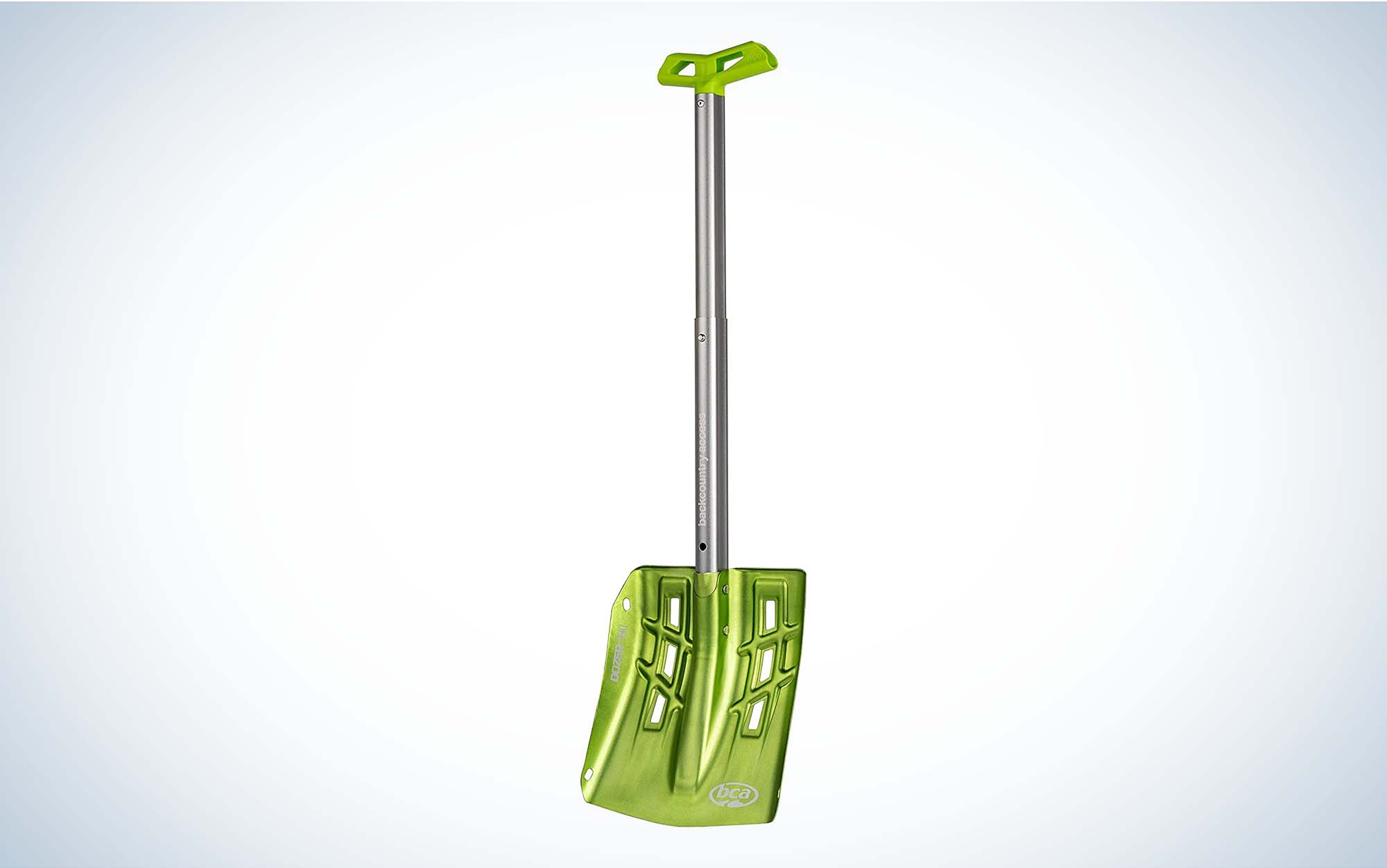We may earn revenue from the products available on this page and participate in affiliate programs. Learn More ›
Updated Sep 29, 2023 7:26 PM
It’s a worst-case scenario for anyone in the outdoors: your partner was caught in a slide, and now it’s up to you to dig them out from under the snow using an avalanche shovel. Every second counts when someone is buried, so it’s imperative to have the right tools on hand, including a transceiver and an avalanche probe. To help you choose the best avalanche shovel for your next backcountry adventure, I spoke with the American Institute for Avalanche Research and Education to learn more what users should look for when making a purchase. Here are four of the best avalanche shovels from some of the most reputable brands in avalanche safety to consider for your next winter adventure:
Avalanche Safety
If you are planning to travel in the mountains during winter and spring, it is essential to your safety to understand what avalanche terrain is, know how to use avalanche forecasts, and be able to read the signs of avalanche danger. The best way to gain this knowledge is through education opportunities and resources provided by the American Institute for Avalanche Research and Education (AIARE) or Know Before You Go.
Why It Made the Cut
This fully featured avalanche shovel has one of the lowest price points on the market.
Key Features:
- Length: 31.1 inches
- Weight: 24 ounces
- T-grip handle
- UIAA certified
Pros
- Easy to assemble
- Straight blade makes it easier to cut a snow profile
- Affordable
Cons
Product Description
Outfitting yourself for backcountry snow travel can be expensive. Even if you already have the right skis and skins, ensuring that your pack (and that your partner’s pack) has the essential avalanche safety gear can easily run you into hundreds of dollars. The Black Diamond Transfer Shovel is a standard-bearer in the market. It’s also comparatively affordable, making it an excellent choice for both those getting started on their first backcountry snow kit and anyone who is looking to upgrade their gear to something UIAA certified.
Why It Made the Cut
The longer length and hoe function of the Alugator Pro Lite Hoe Snow Shovel can help decrease fatigue while digging out your backcountry travel companion.
Key Features:
- Length: 35.4 inches
- Weight: 23.8 ounces
- D-grip handle
- UIAA certified
Pros
- Hoe function
- Straight blade makes it easier to cut a snow profile
- Semi-serrated edge
Cons
Product Description
Snow is extremely heavy, weighing about twenty pounds per cubic foot. And avalanche victims are not always close to the surface—the average depth of burial is over four feet deep. Since time is of the essence in the event of an avalanche burial, it’s essential to be able to move the snow off of the victim as quickly as possible.
The best technique for digging out an avalanche burial victim is to focus on moving small amounts of snow quickly using your whole body, including your core muscles and legs, rather than just your biceps, which will tire out quickly on their own. Not only will the extra length of the Mammut Alugator Pro Lite Hoe Snow Shovel help users engage their core and legs while shoveling snow, but it also has the option to switch to hoe mode, which can be used by a second person to conserve their energy while removing the snow being dug up by the primary shoveler.
Why It Made the Cut
Of the best avalanche shovels the Ortovox is the lightest and it doesn’t skimp on features or functionality.
Key Features:
- Length: 29.9 inches
- Weight: 15.5 ounces
- T-grip handle
- Meets UIAA standards
Pros
- Lightweight
- Can be used as a rescue sled or snow anchor
Cons
- Not currently UIAA certified
Product Description
The instinct to count grams doesn’t end when the snow starts to fall for some in the backcountry. The Ortovox Shovel Pro Light, one of the lightest avalanche shovels on the market, is made by a reputable brand in avalanche safety using agreed-upon standards by the community. While its certification is not currently up to date with the UIAA, it has been certified in the past, as recently as 2021.
Why It Made the Cut
The lightweight Backcountry Access Dozer 1T packs down to less than two feet, but extends out to a beefy 30 inches when fully extended.
Key Features:
- Length: 23.25 inches
- Weight: 19.2 ounces
- T-grip handle
- UIAA certified
Pros
- Lightweight
- Packs down flat
- Affordable
Cons
Product Description
If you’re concerned about fitting an avalanche shovel inside of your backpack, it can help to choose one that collapses down to a smaller size, while still providing the necessary functionality to rescue your partner in an avalanche situation. The Backcountry Access Dozer 1T packs down to just 15.25 inches, with a blade size of 10.5 inches by 9 inches while still extending out to 23.25 inches. It’s also one of the lighter avalanche shovels available at 19.2 ounces.
Things to Consider Before Buying an Avalanche Shovel
Probe and Transceiver
An avalanche shovel is just one tool that you’ll need to have on hand to be prepared in the event that your partner is caught in an avalanche: before you begin digging, you’ll need an avalanche transceiver and an avalanche probe to find where they are buried.
Training
Your avalanche shovel is only going to be useful if you have the training to deploy it effectively in an emergency situation. If you are planning to travel into avalanche terrain, it is essential that you take an avalanche safety course.
UIAA Certification
There are plenty of pieces of gear in your pack where going with a knockoff brand with questionable durability and functionality won’t compromise your immediate safety. The trifecta of avalanche safety—shovel, probe, and transceiver—are not in that category. For your safety, choose well-known brands that have been working in the avalanche safety space for years, such as Black Diamond, MSR, Ortovox, BCA, Mammut, and G3, and look for shovels that, at a minimum, state that they meet International Climbing and Mountaineering Federation (UIAA) standards, and, ideally, those that are currently certified.
Features
D-grip handles versus T-grip handles
The difference between the D-grip handle and the T-grip handle is mainly one of preference; however, if you find that you have difficulty separating your fingers, particularly your ring and middle finger, while wearing gloves (or if you choose to wear mittens in the backcountry), then the D-grip handle may be a better choice for you.
Hoe Mode
At its core, the primary function of an avalanche shovel is to move a lot of snow very quickly. Some avalanche shovels provide users with an alternate method for moving snow called “hoe mode.” In this mode, the blade flips around to the handle so that it’s at a 90 degree angle. This allows a user to move a large amount of loose snow very quickly, either in the case of a shallow avalanche burial (less than half a meter) or in conjunction with a primary rescuer shoveling snow behind them in a pit using the standard avalanche shovel assembly.
Materials
Your avalanche shovel should be made out of metal, not plastic or even polycarbonate (which was more common with older, now discontinued, avalanche shovels). While some backcountry snow shovels on the market are currently made from plastic, these are not appropriate tools for backcountry rescue.
FAQs
Q: How much do avalanche shovels cost?
Avalanche shovels typically cost between $50 and $110, although they can sometimes be purchased at a discount as part of a larger package including a probe and transceiver.
Q: What is the difference between an avalanche shovel and a snow shovel?
While an avalanche shovel and a snow shovel appear to have similar functions at first glance—they are both designed to move snow, after all, snow shovels are not designed to be carried into the backcountry or to enable users to quickly breakup the scene of an avalanche debris field.
Q: When do avalanches occur?
Avalanches can occur on any slope over thirty degrees once sufficient snowpack has accumulated. While the start of avalanche season typically won’t be until late fall in most parts of the country, avalanche conditions can and do persist for as long as June in some places. Understanding what avalanche terrain looks like and checking local avalanche forecasts between heading out is essential to staying safe for anyone traveling during that time of year—not just skiers and snowmobilers.
Q: Who should carry an avalanche shovel?
Anyone who plans to travel on or through avalanche terrain should carry avalanche safety gear, including a shovel, probe, and transceiver, and know how to use them.
Final Thoughts
Choosing the right shovel among the list of the best avalanche shovels is just the first step to ensuring your safety in avalanche terrain. It’s also essential to choose a top of the line probe and avalanche receiver, and to ensure that you have both the training and the experience to use both in the field should the worst happen. If you are considering traveling in mountainous terrain during the winter months, it’s essential that you enroll in an avalanche safety course to learn how to identify and navigate risky terrain.
Methodology
To learn more about what makes an avalanche shovel appropriate to carry into the backcountry, I spoke to a representative from the American Institute for Avalanche Research and Education (AIARE). They shared that while some avalanche shovels were made from polycarbonate in the past, that today the recommendation is to use only metal shovels—the snow from an avalanche, which has essentially slightly melted and then refrozen, is like concrete, and so you need something sturdy to cut into it. It also needs to be compact, able to fit onto your pack or vest, but with a telescopic handle that gives you enough length to move snow with your whole body rather than your arms only, which will quickly tire out under the weight.
While there are several packages available for purchasing avalanche safety equipment, AIARE does not recommend purchasing avalanche safety gear that is designed to “nest” together (such as a probe nesting inside of the handle of an avalanche shovel), as these pieces of gear typically do not assemble quickly enough to be used in a backcountry rescue situation. In conjunction with these recommendations, they also recommend looking for products from reputable brand name manufacturers that meet the International Climbing and Mountaineering Federation (UIAA)—this is a potentially lifesaving piece of equipment, so it’s important to avoid knockoffs that might not have the durability or functionality you need in the event of an avalanche.



